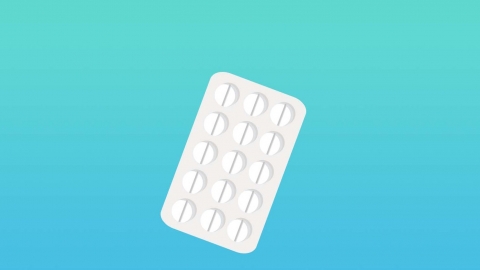What are the efficacy, functions, and side effects of Hugan tablets?
Generally, the efficacy and functions of hepatoprotective tablets include protecting liver cells, reducing transaminase levels, promoting bile secretion, enhancing liver detoxification ability, and providing antioxidant effects. Side effects may include nausea, diarrhea, allergic reactions, dizziness, and dry mouth. It is recommended to use the medication as directed by a physician. A detailed explanation is as follows:

I. Efficacy and Functions of Hepatoprotective Tablets
1. Protection of Liver Cells
Hepatoprotective tablets can protect liver cells from damage through multiple mechanisms. For example, they can stabilize liver cell membranes, prevent direct harm from harmful substances, and maintain the integrity and normal function of liver cells.
2. Reduction of Transaminase Levels
Hepatoprotective tablets help lower serum levels of alanine aminotransferase (ALT) and aspartate aminotransferase (AST). Elevated levels of these enzymes typically indicate liver cell damage. These tablets can alleviate inflammatory responses in liver cells, thereby restoring transaminase levels to normal.
3. Promotion of Bile Secretion
Hepatoprotective tablets can stimulate liver cells to secrete bile, facilitating smoother bile excretion. This aids in the digestion and absorption of fats and promotes the elimination of toxins from the liver via bile, reducing the liver's detoxification burden.
4. Enhancement of Liver Detoxification Ability
Hepatoprotective tablets can enhance the liver's biotransformation function, enabling it to more effectively convert harmful substances in the body—such as drugs and alcohol metabolites—into harmless substances for excretion, thus protecting the body from toxin exposure.
5. Antioxidant Effects
Hepatoprotective tablets contain multiple components with antioxidant properties. These ingredients can eliminate free radicals in the liver, reduce oxidative stress-induced damage to liver cells, prevent the occurrence and progression of liver diseases, and delay liver aging.
II. Side Effects of Hepatoprotective Tablets
1. Nausea
Some ingredients in hepatoprotective tablets may irritate the gastrointestinal mucosa, affecting digestive function and causing nausea. Symptoms may also include reduced appetite, disinterest in food, and decreased food intake, which can impact nutrient absorption.
2. Diarrhea
Hepatoprotective tablets may stimulate intestinal smooth muscle, increasing peristalsis and shortening the retention time of food in the intestines, thus causing diarrhea. The severity varies among individuals; mild cases may experience slightly increased bowel movements, while severe cases may develop watery stools, affecting normal digestion and absorption in the intestines.
3. Allergic Reactions
A small number of individuals may be allergic to certain components in hepatoprotective tablets. The immune system may identify specific ingredients as antigens, triggering an immune response that releases substances such as histamine, leading to allergic symptoms such as skin itching, rashes, and difficulty breathing.
4. Dizziness
Hepatoprotective tablets may affect the regulation of the nervous system or blood circulation, causing temporary abnormalities in cerebral blood supply or nerve conduction, resulting in dizziness. This may lead to instability while walking or standing, affecting daily activities.
5. Dry Mouth
Hepatoprotective tablets may affect the secretory function of salivary glands, disrupting the regulatory mechanism of saliva secretion and reducing saliva production, which can cause dry mouth and bad breath, affecting oral hygiene.
During the use of hepatoprotective tablets, it is important to monitor your body's response. If the above discomfort symptoms or other abnormalities occur, you should stop taking the medication promptly and consult a doctor. Additionally, do not arbitrarily increase the dosage or prolong the duration of medication use, to avoid increasing the risk of side effects.








